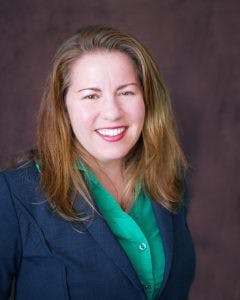By Nicole Martinson
This year’s Whatcom County primary election is breaking records with the highest number of women candidates of any previous race, according to data published by the Center for American Women in Politics.
The percentage of women in state legislatures has slowly gone up over time, with 25.4 percent of state legislatures being women in 2018 compared to 22.4 percent in 2001.
Washington state is within the top-10 states with the most women represented in state legislature at 37.4 percent, according to the Center for American Women in Politics, Rutgers Eagleton Institute of Politics.
The inspiration to run for office can be pinpointed to a sense of urgency for some women in Whatcom County.
After Hillary Clinton’s loss to Donald Trump in the 2016 election, Pinky Vargas, candidate for state senate, said she first felt disheartened, then recognized that women needed to stand up and make changes to support each other.
Vargas said the Women’s March gave a voice to women all over the world and inspired her to actively participate in the shift to represent women in government. Speaking at the march helped her realize she wasn’t alone and women running for office were going to support each other.
“There was unity, comradery and recognition that we needed to make this happen for us, because we felt like we were going backwards,” she said. “We cannot go backwards.”
Sharon Shewmake, Western assistant professor of economics, decided to run for state representative when she noticed incumbent Vincent Buys was set to run unopposed.
“The more I thought about it, the more I realized I would be really good at it,” Shewmake said. “People like me should be running.”
Although she has never run for public office, Shewmake studies what makes good policy every day. She said women need to be asked to run because they are qualified.
“I think seeing men that are so underqualified to do this has made women think ‘Maybe I could do this too,’” she said.
After watching Sen. Doug Ericksen serve as state legislature through her time on Bellingham City Council, Vargas said she eventually thought she could do a better job representing what she considered the values of Whatcom County.
“We have absolutely zero representation from the 42nd district,” Vargas said, referencing that no representatives from the 42nd voted for equal pay for equal work.
But she now feels more optimistic about change for women.
“I think we’re going to elect women all over the country and you’re going to see changes for women in a big way in 2019. I am really excited about that,” she said.
Pinky Vargas was nominated for Whatcom Professional Woman of the Year in 2017 and is endorsed by Bellingham Mayor Kelli Linville for the 42nd district state senate seat.






